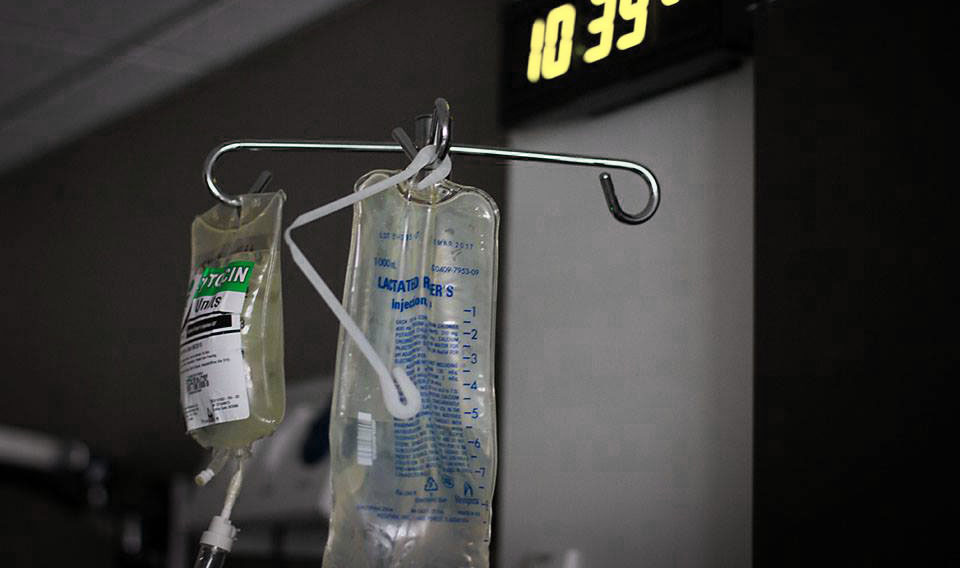
Photo courtesy Melany Willis, Photoplay Photography | www.facebook.com/photoplayportraits
You may have seen that a study, “The Association Between Common Labor Drugs and Suckling When Skin-to–Skin During the First Hour After Birth,” was recently published.
This study investigated whether these medications had any negative correlation to breastfeeding initiation in the first hour of skin-to-skin contact after birth. Results indicate that breastfeeding initiation within the first hour can be affected by the use of common labor medications, specifically, pitocin (synthetic oxytocin) and fentanyl epidurals, and that the amount which it can affect breastfeeding is proportional to how much of the medicine was used.
The Healthy Children’s Center for Breastfeeding also created this video, which also summarizes the study’s results. (Warning: This video is NSFW)
If you haven’t heard about how uninterrupted skin-to-skin time for an hour after birth impacts babies, here is a quick (but not exhaustive) overview:
- Babies have better temperature regulation (better than in a hospital warming bed)
- Babies are better able to regulate breathing
- Babies have better blood glucose readings (by not having expended so much energy to regulate temperature)
- Babies are able to initiate breastfeeding before taking their long post-birth nap (there is a large amount of colostrum available in the first hour or so after birth, which is excellent for storing energy for the longer nap so that they have energy to feed again when they wake and to help break down and clear out placental bilirubin)
- Babies have better long-term breastfeeding outcomes (both in terms of weight gain and duration)
Because Epidurals and Pitocin are so commonly used, what does this mean for parents?

Photo courtesy Melany Willis, Photoplay Photography | www.facebook.com/photoplayportraits
Because so many families in the U.S. choose to use one or both of these medications during labor, I thought it important to explain what this does and does not mean for you, a parent.
What it does NOT mean
It does NOT mean that if you choose to have an epidural, or pitocin, or both, that breastfeeding won’t work.
It does NOT mean that you automatically need to supplement with formula.
It does NOT mean that you should never choose to use an epidural or pitocin.
What is DOES mean
It DOES mean that you have a right to choose to use these medications. But it also means that you should do so with fully informed consent, meaning that you have an understanding of both the benefits and risks and are deciding that using an epidural and/or pitocin before agreeing to it, and any alternatives that you could consider. (Having a doula in the first place is a great option, as they may be able to offer you non-medical suggestions for working through your labor that will not have any potential impact on feeding.)
It DOES mean that breastfeeding initiation may be suboptimal, and you would be well-served to be ready to mitigate these risks. Be observant and look for signs in your newborn that they may need a little assistance with breastfeeding. Examples: an excessively tired baby, fewer than 8-12 feedings per day during the first few days/weeks, a baby who does not sustain feedings before tiring out, dehydration, trouble clearing bilirubin from the system, more than 10% weight loss, slow weight gain/not regaining birth weight by 2 weeks.
It DOES mean that you can and should still make a commitment to breastfeeding your baby, if that’s what you planned.
Three easy measures you can do to mitigate the risks
Lots of skin-to-skin time
Skin-to-skin is awesome for many reasons outlined above. Skin-to-skin during the first hour after birth, as outlined in the video, is ideal and helps with optimal initiation of breastfeeding. But it isn’t just limited to the first hour after birth. Doing it whenever possible during your hospital stay is also great, as is any time you are at home, because it:
- Helps the baby acclimate to the smell of the breast/milk
- Gives better access to the milk, in case the parents haven’t yet adjusted to reading all of their baby’s hunger cues
- Helps stabilize body temp (reducing energy expended by the baby to keep warm)
- Is a hormonal biofeedback system between parent and baby
Skin-to-skin doesn’t mean you have to be naked all the time, in case you prefer to be covered when your father-in-law visits you in the hospital, or you get cold quickly. Solutions:
- You can lay in bed with the baby skin-to-skin and then (safely) put a blanket over both of you.
- You can choose to use a baby carrier and then put an open, zipper or button sweater/sweatshirt over top of both of you.
Hand Expression
This is a great thing for anyone to do, even if you had a completely unmedicated birth and breastfeeding initiation is going great.
Hand express and spoon-feed (or syringe-feed) after nursing (or attempted nursing, in cases where a baby is so sleepy they won’t latch). This gives the baby extra nutrition, helps break down and clear out the placental bilirubin better, helps stimulate better long-term supply (which then correlates to better long-term weight gain in the baby).
For a great video tutorial on hand expression, this Stanford Medical School video is excellent (and also NSFW).
Ask for help from a lactation professional
Have an independent lactation professional’s contact info ready to go, in case you have questions after the birth. Teasing out the difference between normal newborn behavior and ones that signal a need for breastfeeding support can be difficult for parents to do alone, or when a hospital has free bottles of formula ready to go.
The bottom line
You have the right to make fully informed decisions on your labor care. Using an epidural or pitocin (or both, because often epidurals slow down labor and pitocin is used to strengthen contractions) does not guarantee that you will have breastfeeding problems. You may have no issues at all. But nor does your friend, co-worker, or mom telling you that an epidural was a “god-send” for them guarantee that there aren’t associated risks and complications, either. They may not have even realized that some of the things they experienced might be side-effects of some of these interventions. YOU weigh your options, benefits and risks. YOU make an informed decision for your birth.
If you’d like to set-up a prenatal appointment with Becca to discuss your birth plan and create a plan for breastfeeding, please use our handy contact form.
References:
“Early skin-to-skin contact for mothers and their healthy newborn infants,” World Health Organization’s Reproductive Health Library. http://apps.who.int/rhl/newborn/cd003519/en/

 Email
Email